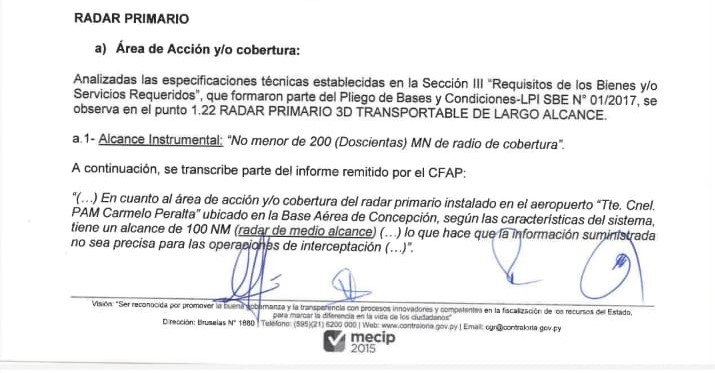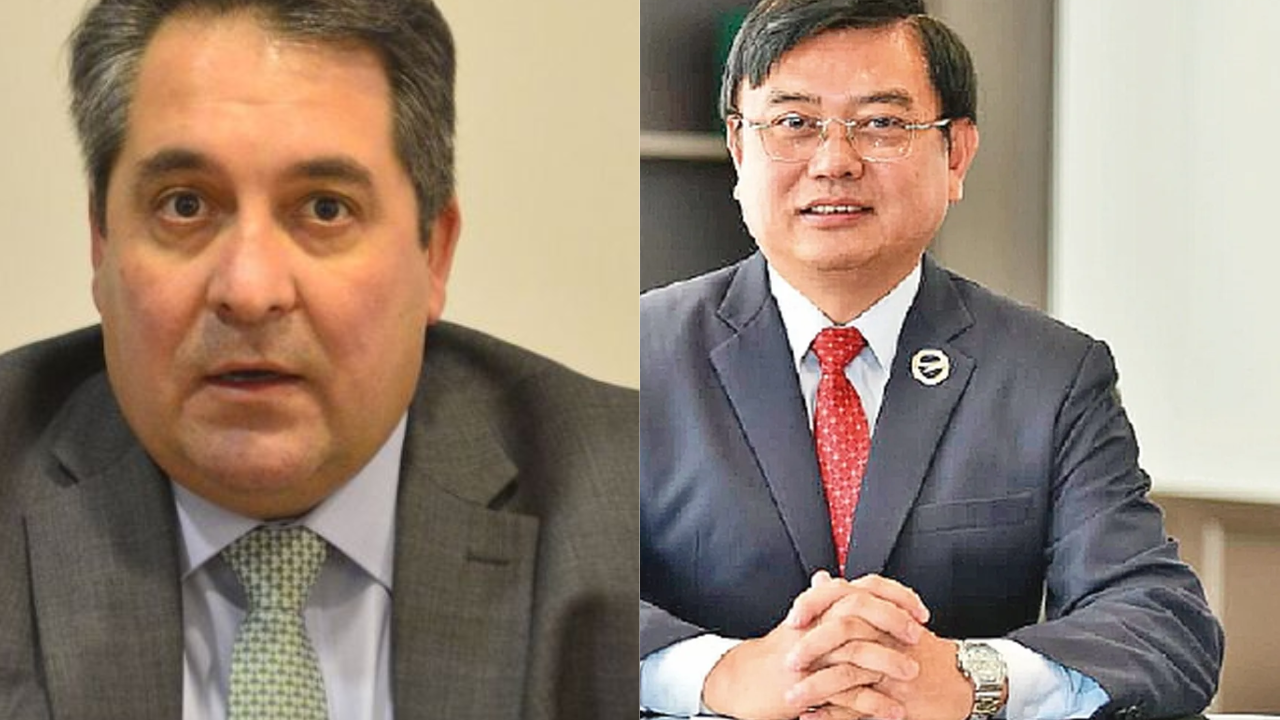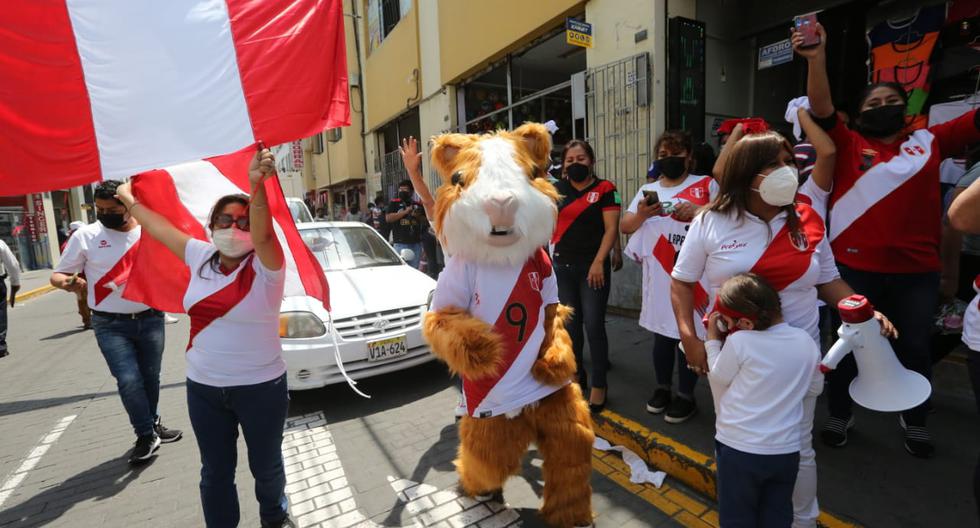Edgar “Beto” Melgarejo, former head of Dinac, and his predecessor Félix Kanazawa guaranteed the purchase of primary and secondary radars for G. 49,997 million. The Comptroller, after an investigation confirmed that the devices do not work.
The National Directorate of Civil Aviation (Dinac) tendered primary and secondary radars in 2017. It is called 330224 for G. 49,997 million (US$ 7.2 million at the current exchange rate). A report from the Comptroller General of the Republic detected serious irregularities in the adjudication process and referred an opinion to the Public Ministry to initiate a criminal investigation.
The supplying firm is Omni SA whose legal representative is Eduardo de Gásperi Camacho, former head of Customs and former counselor of the Social Security Institute (IPS).
Due to complaints about the non-functioning of the radars, at the end of last year, the Comptroller’s Office initiated an investigation to corroborate the facts. The results were published showing several irregularities.
COMPTROLLER REPORT
The Comptroller General of the Republic, through its head Camilo Benítez, shared the final report of the investigation today, Friday. The result was the detection of serious irregularities in the purchase of the devices.
Observation 5 indicates that the company OMNI SA did not test the operation of the radar site. This represents a serious irregularity since this “Test of Acceptance of the Land” was part of the contract and had to ensure that everything works correctly in the place where it was going to operate.
Observation 8 details a last payment, hitherto unknown. Already during the administration of Félix Kanazawa, Dinac paid an increase of G. 826 million for both radars. This, despite having already canceled the payment of G. 49,997 million and not having the certification that the devices worked.

In a section on the report detailing the operation of the primary and secondary radars, it is observed that the range of the devices could not be less than 200 Nautical Miles of coverage radius (370 kilometers), however, according to data from the Air Force, the radars only have a range of 100 Nautical Miles of coverage radius (185 kilometers).

The same happens with the secondary radar. It was supposed to have a range of 250 Nautical Miles (463 kilometers) but it only has a range of 220 Nautical Miles (407 kilometers).

CONTEXT
In December 2017, Dinac awarded the company OMNI SA the purchase of a radar to be installed at the Concepción airport. The contract was signed during the Luis Aguirre administration and a delivery period of 180 days was established (it expired in March 2018).
During the administration of Édgar “Beto” Melgarejo (he took office in August 2018), payments began and the delivery period was extended until April 2019 by mutual agreement between Dinac and OMNI SA The total of almost G. 50 billion ( just over US$7 million) was paid in May 2020, despite the fact that the radar was still not delivered.
Only in August 2021 (almost 4 years after the original contract) did the firm deliver the device. Immediately afterwards, Dinac donated the aircraft to the Paraguayan Air Forces (FAP).
Until today, before the Comptroller’s report, it had not been possible to corroborate whether the radar works or not because the certification of the in-flight work that a specialized laboratory plane had to have done was never presented. The same had to certify and homologate the operation of that radar.
The purchase was made with Dinac’s own funds and was later donated to the Air Force. Until now, Dinac has published a copy of a technical report from a specialized laboratory aircraft that has certified the optimal operation of the radar installed in Concepción.
Despite the lack of certification, Dinac has already paid the entire sum in favor of the OMNI company. This certificate had to be received before the cancellation of the debt.
This radar has two functions. The primary radar has the capacity to detect clandestine or furtive flights that enter the Chaco in a field of almost 400 kilometers around. What is the ability of the radar?
While the secondary part is for civilian use. In other words, it is intended exclusively to deliver radar signals from planes that enter the country legally. But that operation was left to the Air Force. Dinac made the purchase, but later donated it. Now the Air Force is the one that must deliver the certificates.
This lack of certification was reported last year to the Comptroller, the results of this report were published today.
The payment to the company occurred during the administration of Édgar “Beto” Melgarejo. He himself resigned from the position in April 2020 after a journalistic investigation revealed purchases of overbilled medical supplies, acquired under his management.
A journalistic investigation revealed in 2019 that around 30 drug planes leave Bolivia every day for Brazil and Paraguay. As the neighboring country has a law to shoot down clandestine flights, it is estimated that most of these flights come to our country.
In accordance with the legal opinion, the Comptroller’s Office referred the Public Ministry to initiate the investigations.















